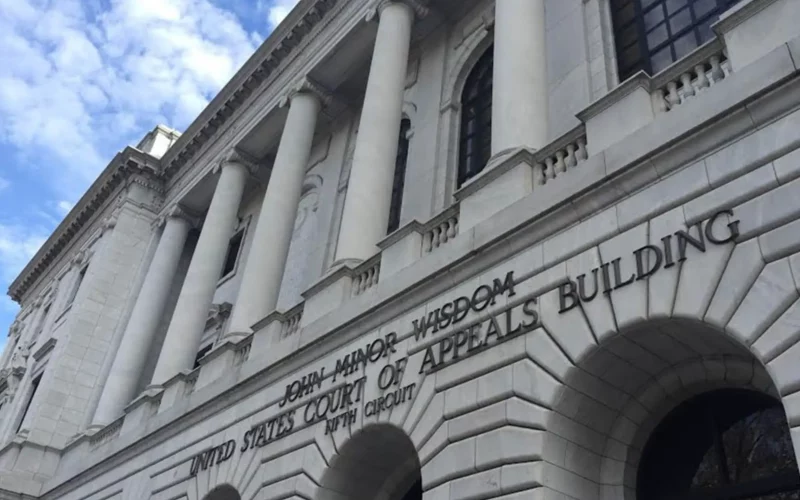The Fifth Circuit Court of Appeals has affirmed a previous ruling from a lower court that restricts several federal government officials from engaging with social media companies.
The appeals court upheld a decision in the case of Missouri v. Biden, which was issued by the U.S. District Court for the Western District of Louisiana.
“The Fifth Circuit has upheld the district court’s order in our free speech case, Missouri v. Biden, enjoining the White House, Surgeon General, CDC, & FBI from violating the First Amendment rights of millions of Americans,” Missouri Attorney General Andrew Bailey posted on X on Friday.
In a 74-page opinion published late Friday, the U.S. Fifth Circuit Court of Appeals, headquartered in New Orleans, concluded that government officials had exerted pressure on social media platforms to suppress viewpoints they disapproved of regarding Covid-19 health policies, the pandemic’s origins, and contentious subjects such as election security and Hunter Biden.
“Ultimately, we find the district court did not err in determining that several officials—namely the White House, the Surgeon General, the [Centers for Disease Control and Prevention], and the FBI—likely coerced or significantly encouraged social-media platforms to moderate content, rendering those decisions state actions,” the three-judge panel wrote. “In doing so, the officials likely violated the First Amendment.”
The judges on the panel, Edith Brown Clement, Don Willett and Jennifer Walker Elrod, were appointed by Republican presidents, the Wall Street Journal noted.
This ruling emerged from a case that represents one of the most significant First Amendment disputes currently in the courts, assessing the boundaries of government oversight of social media content on major platforms like Facebook, YouTube, and the recently renamed Twitter (referred to as ‘X’).
In many aspects, the court’s decision aligned with the findings of a federal judge who had ruled against the government on July 4 and criticized the Biden administration for creating what he referred to as an ‘Orwellian ‘Ministry of Truth.”
However, the appeals panel, while cautious about restricting the government’s freedom of speech, narrowed certain aspects of the judge’s injunction against the administration. It implemented less extensive restrictions on how the government can engage with online platforms and applied these limitations to a smaller group of federal agencies and officials.
The judges on the panel, Edith Brown Clement, Don Willett and Jennifer Walker Elrod, were appointed by Republican presidents.
In July, the district judge issued a preliminary injunction that barred the defendants, including President Joe Biden, United States Surgeon General Vivek Murthy, Health and Human Services Secretary Xavier Becerra, and former chief medical adviser Anthony Fauci, from communicating with social media companies regarding content they believe to be misinformation.
The judgment arose from a legal action led by the Republican attorneys general of Missouri and Louisiana, who showed conclusively that the Biden administration had facilitated an extensive ‘federal censorship enterprise’ with the aim of quelling what it argued was widespread misinformation and disinformation on social media.
According to the plaintiffs, White House and other government officials employed subtle threats of potential new regulatory liabilities and antitrust enforcement to pressure social media companies into removing undesirable content.
The Justice Department claimed that the injunction sought by the plaintiffs would obstruct the government’s ability to combat foreign influence campaigns, prosecute crimes, safeguard national security, and provide accurate information on critical public concerns.
Among the plaintiffs were epidemiologists who had authored the Great Barrington Declaration, an open letter from October 2020 critical of government Covid lockdown policies and school closures. They contended that the government had initiated a campaign to discredit and suppress the declaration.
In response to the government’s coercive efforts, social media platforms ‘began removing content and deplatforming users they hadn’t previously targeted.’ This included information shared by influential vaccine critics known as the ‘disinformation dozen,’ whom the White House had identified as problematic.
The platforms “not only continued to take down content the officials flagged, and provided requested data to the White House, but they also changed their moderation policies expressly in accordance with the officials’ wishes,” the court’s opinion added.

